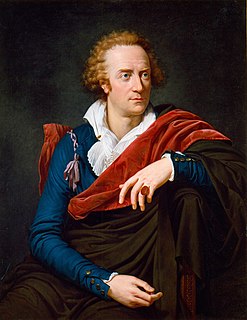A Quote by Vittorio Alfieri
The guilty is he who meditates a crime; the punishment is his who lays the plot.
Related Quotes
He’s bound to have done something,” Nobby repeated. In this he was echoing the Patrician’s view of crime and punishment. If there was a crime, there should be punishment. If the specific criminal should be involved in the punishment process then this was a happy accident, but if not then any criminal would do, and since everyone was undoubtedly guilty of something, the net result was that, in general terms, justice was done.
Governments have tried to stop crime through punishment throughout the ages, but crime continued in the past punishment remains. Crime can only be stopped through a preventive approach in the schools. You teach the students Transcendental Meditation, and right away they'll begin using their full brain physiology sensible and they will not get sidetracked into wrong things.
The best crime stories are always about the crime and its consequences - you know, 'Crime And Punishment' is the classic. Where you have the crime, and its consequences are the story, but considering the crime and the consequences makes you think about the society in which the crime takes place, if you see what I mean.
And if I'm guilty of having gratuitous sex, then I'm also guilty of having gratuitous violence, and gratuitous feasting, and gratuitous description of clothes, and gratuitous heraldry, because very little of this is necessary to advance the plot. But my philosophy is that plot advancement is not what the experience of reading fiction is about. If all we care about is advancing the plot, why read novels? We can just read Cliffs Notes.
Muslims consider the honor of the Prophet Muhammad to be dearer to them than that of their parents or even themselves. To defend it is considered to be an obligation upon them. The strict punishment if found guilty of this crime under sharia, the Islamic law, is capital punishment implementable by an Islamic State. This is because the Messenger Muhammad said, ‘Whoever insults a Prophet, kill him.’
Any punishment that does not correct, that can merely rouse rebellion in whoever has to endure it, is a piece of gratuitous infamy which makes those who impose it more guilty in the eyes of humanity, good sense and reason, nay a hundred times more guilty than the victim on whom the punishment is inflicted.
That's all my grandfather was guilty of, fear, faith in his words, but that was a high crime in her eyes. That's all Jack was guilty of that day, but I've lived with him a good while and I believe I understand him. Sometimes it might take an afternoon or evening of being here in this kitchen alone, thinking, but I can usually come to see his reasons through his ways. And half the job of finding peace is finding understanding. Don't you believe it to be so?

































